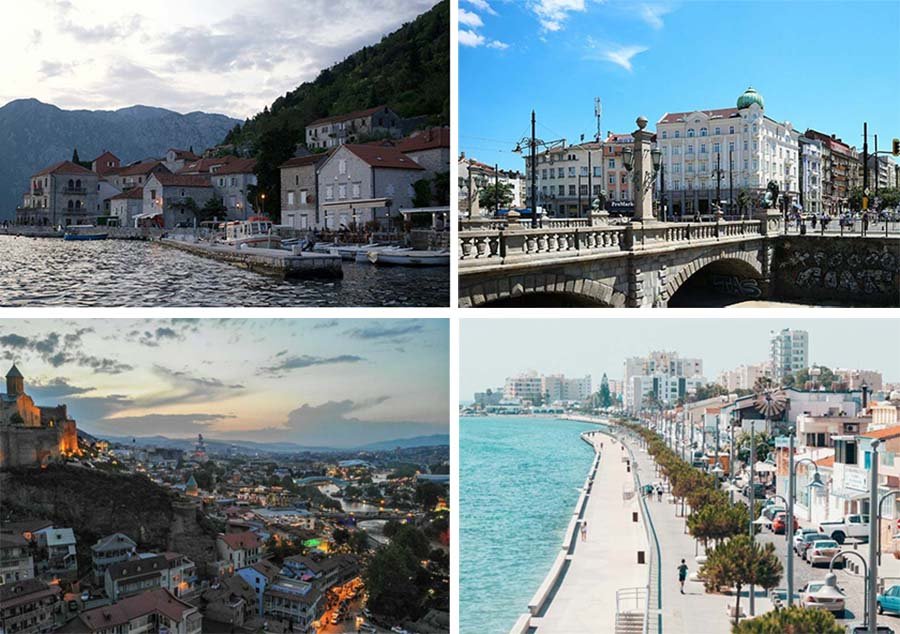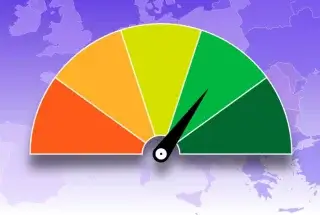Migration News of the Week: Relocation Rules Are Changing

Bulgaria has joined the wide ranks of countries offering a digital nomad program. In Georgia, authorities detected a growing number of foreigners transferring more and more money, despite some analysts predicting that everyone would leave. Montenegro is trying to get rid of inactive firms that foreigners created just for legalization purposes. And Cyprus has decided to deal with investors.
Montenegro: No more “zero companies”?
The Montenegrin authorities submitted to parliament a bill that changes the rules for obtaining and extending residence permits. Among the advantages is the transition to a digital format: applications for visas and residence permits can be filed online. Among the disadvantages for migrants pretending to be entrepreneurs is a significant increase in financial burden. If the bill is approved, applicants will have to hire at least three employees, one of whom must be a Montenegrin citizen.
The scheme of registering a company without real activity is quite popular in the country. Foreigners, many of them Russians, use it simply to obtain Montenegrin residency. This option may soon become unavailable, so “business migrants” are already considering other grounds or changing their place of residence.
Property owners may be required to have their assets assessed by tax authorities and confirm that all fees are paid. The draft law also requires proof of financial capacity – at least €3,650 per person per year.
At the same time, IT specialists and healthcare workers have nothing to worry about. The rules are expected to be eased for them – granting a three-year residence permit. However, there are nuances: the employment contract must be for at least 12 months, and the financial threshold is set at no less than €2,900–3,300 per month (equal to three average salaries in 2024).
Families will also have an easier time, including same-sex couples, but the authorities are tightening checks on fake unions. Humanitarian grounds cover illegally employed foreigners and stateless persons. In this way, Montenegro is trying to shift to European standards, hoping to join the Schengen Area within a couple of years.
Bulgaria introduced a digital nomad visa
Back in June, Bulgaria passed a law with a new program for foreigners, but some provisions were refined later. So in reality, it is only starting to work now. The main news, of course, concerns digital nomads – a very popular basis for relocation. The country expects specialists who work remotely and earn at least 53,850 leva (€27,533) per year, or about 2,300 monthly.
Initially, the authorities spoke of six months, but some sources now mention a year of validity for such a permit. In any case, the financial threshold for Bulgaria is relatively high. For example, in Montenegro, residency can be obtained with an income of up to €1,500 (an unwritten rule – at least €15,000 must be in the bank account), while in Georgia the conditions are even softer. The amendments also affected other categories of foreigners: representatives of foreign companies, students. Rules for employers have also become stricter.
Who transfers money to Georgia
Analysts from various platforms regularly predict that foreigners will soon leave Georgia en masse. Reality once again turned out differently. Throughout 2025, remittances from abroad have been growing. Transfers from Russians declined somewhat, but they still remain in the top three. The leaders are now consistently the US and Italy.
The National Bank of Georgia reports that from January to August 2025, the country received $2.37 billion. Amounts grew every month, and these trends continued in summer. In June, transfers reached $315.5 million, 12.2% more than in the same month of 2024.
Main transactions:
USA – $58.8 million (+23%);
Italy – $51.6 million (+12.8%);
Russia – $41.1 million (–15.9%).
Flows from Germany, Israel, Greece, Spain, and Kyrgyzstan also increased.
In July, transfers grew to $337 million (+13%). The leaders remained the same – from $60.9 million from the US to $45.2 million from Russia. In August, the volume increased by 10.7% to $321.5 million, including:
USA – $59.3 million (+16.8%);
Italy – $53.4 million (+8.3%);
Russia – $41.3 million (–2.9%).
Slovakia (+31.8%) and Saudi Arabia (+20%) joined the list of countries with high growth rates. Indicators are likely to continue rising, as Georgia has begun issuing a new residence permit for IT specialists.
Cyprus to check investors
Real estate purchases in Cyprus and relocation to the island may become less attractive. The country has already started tightening many rules, and now it is discussing a draft bill on increased control. If approved, inspections and slower procedures will follow. Moreover, even already concluded deals can be canceled within 14 months. So stability is out of the question.
It should be recalled that the “golden visa” program may either be canceled or significantly changed. Many politicians and officials in the country believe that the preferential 5% VAT rate for foreigners is excessive and that they should pay more. Meanwhile, yields in Cyprus range between 4–6%, which is noticeably lower than, for example, Georgia’s 8–9%.
Подсказки: migration, residency, Montenegro, Bulgaria, Georgia, Cyprus, digital nomads, investors, expats, relocation 2025








